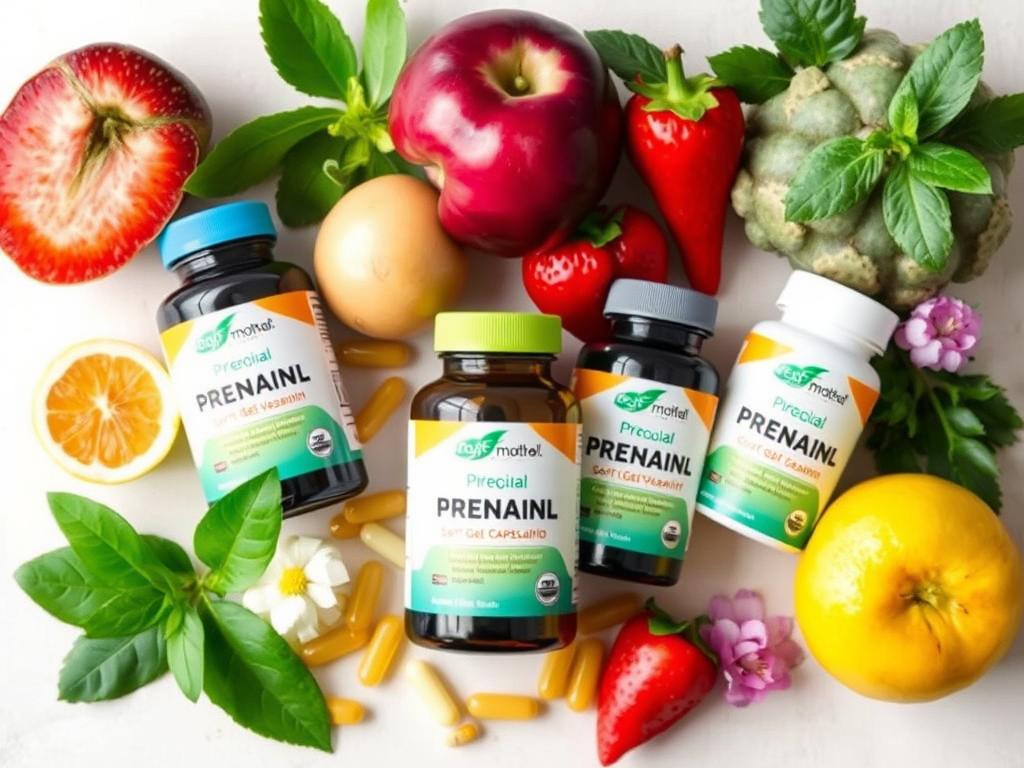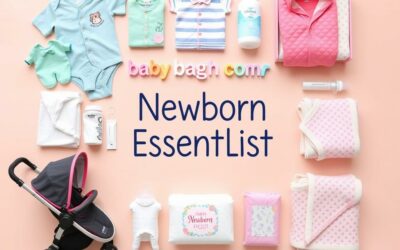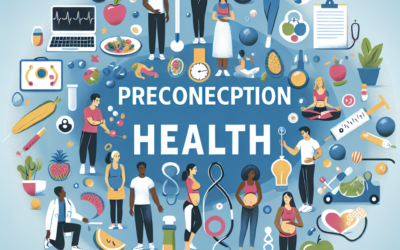Prenatal vitamins are key for expecting mothers. They help your health and your baby’s growth. Experts like the Mayo Clinic say they are crucial.
They give your baby the nutrients they need. This is especially true when your diet might not have enough.
When you’re expecting, your life changes. Knowing prenatal vitamins are important can help you make good choices. They support your health and your baby’s growth.
Start taking prenatal vitamins three months before you get pregnant. This is when you need folic acid, iron, calcium, and vitamin D the most. It’s important to start early, even before you know you’re pregnant.
Prenatal vitamins have more of the nutrients you need. Folic acid is key to prevent birth defects. Iron helps your baby get enough oxygen and keeps you from getting anemia.
Calcium and vitamin D are also very important. They help your baby’s bones and teeth grow strong.
Key Takeaways
- Prenatal vitamins should be started ideally three months before conception due to early fetal neural tube development.
- Iron is essential not only for fetal and placenta development but also for preventing maternal anemia.
- Calcium and vitamin D are critical for the baby’s skeletal and dental development.
- Increased folic acid intake is particularly crucial for those with a history of neural tube defects in previous pregnancies.
- Omega-3 fatty acids, such as DHA, are important supplements for fetal brain development.
- A high-quality prenatal vitamin can offer a substantive amount of essential nutrients like vitamin D, folate, and iron.
- Consultation with healthcare providers is recommended to manage any side effects and to tailor prenatal vitamin intake to individual needs.
Why Prenatal Vitamins Are Crucial for Pregnancy Health
Pregnancy means the body needs more nutrients for the mom and baby. Prenatal vitamins are key in this time. They help meet nutritional needs that regular food can’t cover.

Prenatal vitamins have important nutrients like folic acid, iron, calcium, and vitamin D. These nutrients support the baby’s growth and the mom’s health. They help meet the daily needs for a healthy pregnancy.
The Role of Folic Acid in Preventing Neural Tube Defects
Folic acid is vital for preventing birth defects of the brain and spine. The American College of Obstetricians and Gynecologists suggests starting folic acid intake a month before pregnancy. It’s important to keep taking it during the first trimester to lower the risk of these defects.
Iron’s Function in Fetal Development and Maternal Well-being
Iron is crucial for the mom’s health and the baby’s growth. Taking iron supplements during pregnancy helps make more blood. This blood delivers oxygen to the baby, supporting its growth and preventing issues like premature birth.
Calcium and Vitamin D: Building Blocks for Baby’s Bones and Teeth
Calcium and vitamin D are important for the baby’s bones and teeth. Getting enough calcium intake and vitamin D for pregnancy helps the baby’s growth. It also keeps the mom’s bones strong, preventing osteoporosis later on. Experts recommend at least 1000 mg of calcium and 600 IU of vitamin D daily.
Managing these nutrients through supplements and a balanced diet is key. It ensures a healthy pregnancy and a strong baby. Prenatal vitamins are essential for prenatal care.
A Deep Dive into Nutrient Requirements for Expecting Mothers
During pregnancy, maternal nutrition is key for your health and your baby’s growth. Your body needs more nutrients to support your baby’s development. This means looking closely at your nutrient requirements during this important time.
Understanding the Increased Demand for Key Nutrients
Your body needs more nutrients for your baby’s fast growth and development. For example, you need about 71 grams of protein daily in your second and third trimesters. Iron is also crucial to prevent anemia and support your baby’s growth, found in lean meats and leafy greens.
Calcium and vitamin D are important for your baby’s bones and teeth. You can get these from dairy products and sunlight. These nutrients are vital for your baby’s health.
Supplementing Your Diet: When Food Isn’t Enough
- Folic acid is key to prevent neural tube defects. Leafy greens alone might not provide enough.
- Omega-3 fatty acids are important for brain development. They might need to be supplemented, especially if you don’t eat fish often.
- Adequate iodine intake is crucial for thyroid function in both you and your baby. Prenatal vitamins often include this.
Prenatal vitamins are important to fill nutritional gaps and support your maternal nutrition.
Customizing Your Prenatal Vitamin Regimen: Individual Needs Matter
Every pregnancy is different, and so are the nutritional needs. For example, those with higher BMI or specific conditions might need more tailored nutrients. This ensures both you and your baby get what you need.
Talking to your healthcare provider is key to create a prenatal vitamin plan that meets your needs. This will help improve your health and your baby’s development.
Getting the right nutrients is crucial for a healthy pregnancy. It can also affect your child’s health and food preferences later. Making sure you get enough prenatal vitamins is good for you and your child’s future.
Selecting the Optimal Prenatal Vitamins for You and Your Baby
Starting your journey as a mother means getting ready in many ways. Choosing the right prenatal vitamins is key. These vitamins help meet your body’s needs during pregnancy.
Iron is crucial, as 28% of women in the U.S. get anemia in their third trimester. Prenatal vitamins often don’t have enough vitamins and minerals. Look for a vitamin with at least 1 g/day of calcium to lower risks of preeclampsia.
It’s also important to find vitamins with iodine and magnesium. These are often lacking in the U.S. diet. Make sure your prenatal vitamin has enough vitamin A and magnesium.
Vitamin C is also vital. It can reduce the risk of preterm birth by 34%. Choose a vitamin with at least 600mcg of folic acid and DHA for your baby’s brain.
Choosing the right prenatal vitamin is about your health and your baby’s. Talk to your healthcare provider about your needs. They can help you pick the best vitamin for you.
Start taking these vitamins before you get pregnant, but it’s okay to start anytime. The American College of Obstetricians and Gynecologists says they help your baby grow. Pick vitamins that are tested by the U.S. Pharmacopeia (USP) or NSF International for the best quality.














